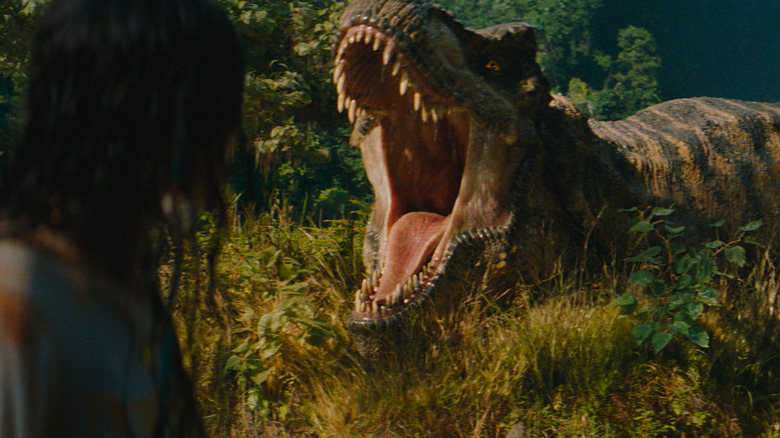While Disney’s 1995 animated film “Pocahontas” may be morally heinous due to its numerous historical inaccuracies, the soundtrack is worthy of praise as it is one of the most glorious collections of music to exist.
Fans of genius composer Alan Menken, who is no stranger to the world of Disney feature film music, will find this soundtrack to be in line with his majestic resume of film scores, a casual finesse for the man, the myth and the legend himself.
After the first trilogy of films featuring his original music dating back to 1989 with “The Little Mermaid,” 1991 with “Beauty and the Beast” and 1992 with “Aladdin,” Menken had plans to remain at the top of the Disney feature film score game with “Pocahontas.”
With the help of songwriter Stephen Schwartz, Menken gave birth to one of Disney’s largest and most complex soundtracks. Receiving critical acclaim and winning multiple awards for both the score and the film’s main title song “Colors of the Wind,” this was nothing out of the ordinary for Menken or Disney feature films, both of which were at their historic peak during this era.
“Pochahontas” epitomizes Menken’s style at the time – signature songs of simple harmonic construction and a score rich in light orchestral flavor. However, due to the story’s much more balanced and steady tone compared to the previous films in his repertoire, Menken had to refine his routine to connect to what Pocahontas herself embodies: grace, delight and awe.
Taking that a step further, the film’s dark coloration with a more serious, dramatic stance influenced the score’s overall demeanor, resulting in a beautiful collection from top to bottom.
Most fans will hold “Colors of the Wind” and “Just Around the Riverbend” as well-known favorites, as they both feature Judy Kuhn’s phenomenally unstoppable vocal range paired with lush instrumentation. Plus, who doesn’t love a Disney ballad?
“Colors of the Wind” helps John Smith break free from his shallow ignorance and understand how the cultural differences between him and Pocahontas can make the world a brighter place rather than a darker one, despite what the Englishmen and Native Americans proclaim throughout the entire film. The soundtrack includes the just as powerful Vanessa Williams version as well.
“Just Around The Riverbend” embodies the excitement and anxiety the future can bring – something many college students can find relatable. Similarly, Grandmother Willow (Linda Hunt)’s “Listen to Your Heart” serves as the film’s spiritual centerpiece and is a message all 20-somethings can use when confronted with making difficult decisions at the start of adulthood.
Disgustingly offensive anthem “Savages” is sung by the Englishmen as they plan to invade Native American territory while Disney regular David Ogden Stiers takes lead vocals as villain Ratcliffe in greed-fueled “Mine, Mine, Mine.”
Mel Gibson proved himself as Smith with his triumphant feature on “Mine, Mine, Mine” but his range in the originally rejected love song “If I Never Knew You” with Kuhn is impressive. The song possesses extravagant emotion and contributes an extra layer of richness to the romantic narrative of the film. The soundtrack’s heartfelt version recorded by Jon Secada and Shanice is noteworthy.
Menken’s dreamy instrumentals which soundtrack pivotal scenes in the film, namely the beautiful evolutionary sequence of Pocahontas and Smith meeting and becoming acquainted with each other in the midst of their budding yet forbidden love, signal the necessary romantic aspects of the “historically based” film. Arguably, these are the most perfect points of the soundtrack.
If flaws reside at all here, the film’s extremely fast pace denies each song the equal opportunity to exist in the form of the regal ballads they probably should have been. Even still, the soundtrack itself remains an enjoyable experience for people of all ages, transcending the course of time and history.
After Disney’s disgraceful interpretation and shameful attempt at a history lesson, the story of Pocahontas deserves so much more from the world. At the very least, Menken had the maximum talent to compose a score not only fit for a desirable Disney princess but a virtuous historical figure whose tragic story has been unfairly romanticized.










